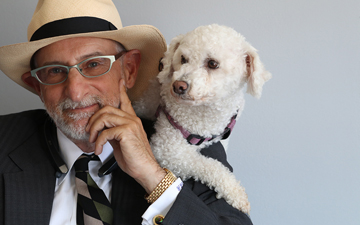What are the ethical obligations of a tax professional?

Tax Lawyer David J. Rotfleisch on the ethical obligations of accountants and lawyers in practice
TORONTO, Nov. 24, 2017 – One of my associates recently sent me an email with questions about how to draft an agreement for a long-term client. He said that the client was advancing about $20,000 as a loan to a friend’s business. He would be entitled a repayment of the loan plus an entitlement of 15 per cent of all future profits. I pointed out that this could be a criminal rate of interest if structured as a loan and that perhaps it was really an equity investment.
In any event, it seems far from a normal business transaction so I asked him to set up a conference call with the client to determine exactly what was going on and how best to structure it.
The client was not fully forthcoming at first so I had to press a little to get the facts. It turned out to be an investment in a cash-based renovation business. His friend planned to do construction renovation largely in cash. My client was going to advance start-up funds and be entitled to a percentage of the cash earned by the business.
He kept pressing me to “just draft something” that would set out the business terms. It took him a while to realize the incongruity of asking for a written agreement to set out the terms of a cash operation that would be paying him in undeclared cash that he would not himself declare either. Once he understood that minor dilemma, he still kept asking me for solutions.
I have written before how I don’t believe in supporting the cash economy. I was certainly not going to aid and abet a client in doing so, even if I could come up with a structure that could work.
Instead, I did my best to point out the pitfalls to him in an attempt to dissuade him from proceeding. I told him how the underground economy in general, and the construction sector in particular, were a target of the Canada Revenue Agency and that specific ongoing audit projects target that sector. I mentioned to him that if his friend was subject to a tax audit by the CRA and they found unreported cash, his friend would have a major incentive to squeal about the cash being paid to him.
My advice was that if he wanted to proceed on the basis that it was a good investment, do it on the books. His friend would report some income and expenses to the CRA, so my client could be on the books and be paid by cheque and could report all income received. I would draft an appropriate agreement that would protect my client, although he might not receive all of the income he was expecting. My client said he would consider if he wanted to do the deal on paper or abandon it completely.
Did my client take my advice? I like to think that he did, that he walked away and did not decide to do an all-cash deal with no documentation.
Which leads us to the ethical issues tax practitioners often face: We owe a duty to our client but have ethical obligations over and above that duty. With lawyers, a taxpayer has the added protection of solicitor-client privilege. So, while the CRA cannot access my files, this doesn’t relieve me of the duty to uphold the law.
Accountants have that duty as well but their files can be seized. If they are involved in filing wrong tax returns, they can be charged with third-party advisor penalties even if they were not aware of the errors. I often do voluntary disclosures for clients who have unreported income of which even their accountant was unaware.
While we’re all interested in practice development, it’s important to know your client and know your ethical boundaries.
David J Rotfleisch, CPA, CA, JD is the founding tax lawyer of Rotfleisch & Samulovitch P.C., a Toronto-based boutique tax law firm. With over 30 years of experience as both a lawyer and chartered professional accountant, he has helped start-up businesses, resident and non-resident business owners and corporations with their tax planning, with will and estate planning, voluntary disclosures and tax dispute resolution including tax litigation. Visit www.Taxpage.com or email David through david@taxpage.com.







(0) Comments